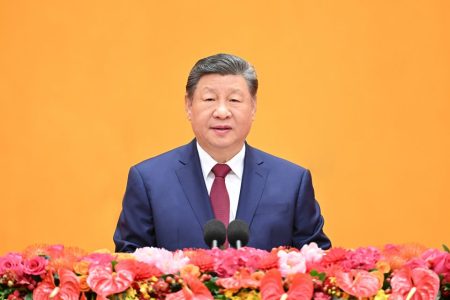Just weeks after adopting its new stablecoin ordinance, Hong Kong introduced the world’s first tokenised yuan bond in a deal seen carrying broad implications not only for the financial hub’s digital ambitions, but also shaping neighboring Macao’s economic contributions to the Greater Bay Area (GBA).
Last Friday, Shenzhen Futian Investment Holdings raised 500 million yuan (CNH, offshore yuan) in Hong Kong by issuing a two-year tokenised bond placed on the Ethereum blockchain. The debt offering, which also trades in Macao and Shenzhen, utilises connectivity schemes linked to Hong Kong, positioning the deal, and its structure, as a potential bellwether for subsequent issuances and capital raising opportunities across the region.
In recent months, financial links across the GBA have tightened to expand cross-border investment channels and enhance capital market connectivity. Back in January, the Hong Kong Monetary Authority (HKMA) and the Monetary Authority of Macao (AMCM) aligned clearing and debt settlement functions in a move local policymakers hope can draw international investors, particularly from Portuguese-speaking countries, looking to Macao’s local exchange as a financial service platform between China and the lusophone nations.
[See more: Hong Kong stablecoins deepen US dollar peg while opening a path for offshore RMB tokens]
In addition to the GBA-wide integration, blockchain based offerings are garnering optimism among crypto enthusiasts. “The industry has arrived at a moment where digital asset rails are opening for traditional financial players and listed companies globally,” shares Zen Fong, co-founder of CanvasLand Technology & OriginTrail APAC Partner, speaking to Macao News, describing the tokenised framework as evolving beyond the experimental stage and into one with functional uses in modern finance.
Deals like the one executed by Shenzhen Futian underscore Hong Kong’s drive to foster digital asset innovation while maintaining a firm commitment to regulatory clarity. Back in August, the financial hub’s stablecoin law was adopted, allowing the use of US dollar (USD) assets to back Hong Kong dollar (HKD) stablecoins, effectively mimicking the currency intervention mechanism of the HKMA, explained Ying Wang of Simmons & Simmons in earlier comments to Macao News.
Impact on Macao
Macao’s financial engagement is largely channeled through Hong Kong’s infrastructure. For the local pataca (MOP), which is anchored to the HKD, Hong Kong’s stablecoin regime indirectly strengthens the dollar architecture and the monetary linkages Macao depends on, CanvasLand’s Fong explains, noting even though Macao has yet to write its own stablecoin regulations, confidence in the underlying digital assets backed by HKD and USD bolsters support for the MOP’s stability.
Digital implications also pass through Hong Kong’s technological backbone. While no formal stablecoin pilot projects involving both SARs have been publicly announced, Hong Kong’s sandbox provides an experimental testbed for Macao to adopt tokenised digital assets or next-generation payment rails that might be beneficial to its tourism and gaming sectors, Fong adds.
[See more: Macao’s top finance official underscores commitment to economic diversification]
Those technological developments come amid budding policy support. Back in June, People’s Bank of China (PBoC) governor Pan Gongsheng called for a multipolar currency system, highlighting the digital yuan and stablecoins as proposed viable alternatives in cross-border settlements. Beijing has long voiced its desire to promote greater international use of the yuan, although stringent capital controls constrain offshore liquidity.
Cryptocurrencies remain banned in China, however its sovereign digital yuan enjoys direct government backing and integration advantages, positioning it as the preferred digital currency, according to analysts. The latest CNH tokenisation bond deal further integrates Macao into the financial linkages spanning the GBA where maturing frameworks and pilot projects are expected to continue shaping the region’s financial future, offering an early glimpse into Macao’s digital trajectory, even if it happens to be an indirect one for the moment.






